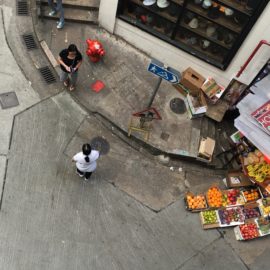

This article is an excerpt from the Shortform book guide to "Behind The Beautiful Forevers" by Katherine Boo. Shortform has the world's best summaries and analyses of books you should be reading.
Like this article? Sign up for a free trial here .
How did India’s economic collapse in 2008 affect the residents of Annawadi, according to the book Behind the Beautiful Forevers? What did the residents do to survive?
India’s economic collapse heavily affected sectors like construction and hospitality which resulted in fewer jobs for Annawadi’s residents. Hungry residents started eating rats and frogs, while some like Sunil survived by stealing.
Read on to learn more about the devastating impact of India’s economic collapse on Annawadi’s residents.
The 2008 Global Recession
By 2008, the great recession had begun in the U.S. and started to affect the livelihoods of Annawadi residents in numerous ways. Meanwhile, the court began the trial of Kehkashan and Karam, but it was a long process.
India’s Economic Collapse Felt in Annawadi
India’s economic collapse affected the local economy of Annawadi in complex ways. As the U.S. stock market collapsed, and other markets lost value, it meant there was less money from foreign investors being channeled into development projects in India. This resulted in fewer construction jobs available at the airport as well as in related businesses like hotels and parking garages.
India’s economic collapse also affected the price of scrap metal. This meant that trash pickers couldn’t earn as much for collecting the same kinds of materials. At first, the trash pickers thought things would pick up with the start of the tourist season. In November, Indians from abroad visited for the Hindu festival Diwali, people from the U.S. and Europe visited during December, and Chinese and Japanese tourists visited through January, producing more trash to collect and sort.
But around the same time that Annawadians started to feel the effects of India’s economic collapse, terrorists began carrying out attacks around Mumbai. They targeted places that served tourists, such as hotels, train stations, and taxis. The slum dwellers realized the tourist season they were hoping for wasn’t going to materialize because people wouldn’t want to travel to a city besieged by terrorism. Many slum residents, unable to afford enough food, had to eat rats and frogs again.
Thievery: Sunil’s New Line of Work
To continue to earn a living while the economy suffered, Sunil joined a group of boys who stole metals from construction sites around the airport. The group searched for nickel, electroplate, and aluminum because these were the most profitable metals. Almost everything else had fallen in price.
Once, Sunil was caught searching for metal and was beaten by a constable. He worried about being murdered like Kalu if he weren’t careful. One place he frequented for metals was an under-construction parking garage. He liked watching the people of higher classes coming to and from the airport from the roof of the garage. Though he used to think that he might surpass his current socioeconomic status and join a different class of people in Mumbai, he wasn’t so sure now.
Occasionally, he and Abdul talked about their quality of life. Both boys agreed that even if they had a bad life, there was still value in being alive. Abdul learned this when Zehrunisa beat him once: He realized that even if she continued to beat him every day, he would still have a life.
Sunil thought that if he, like Kalu, were to die, it wouldn’t matter to people in the higher classes in Mumbai. However, he thought that valuing his own life counted for something, even if others didn’t value it.

———End of Preview———
Like what you just read? Read the rest of the world's best book summary and analysis of Katherine Boo's "Behind The Beautiful Forevers" at Shortform .
Here's what you'll find in our full Behind The Beautiful Forevers summary :
- A nonfiction account of the lives of residents of in one Mumbai slum
- How the globalized world affects many people in India
- A story of poverty, exploitation, and the struggle to survive






